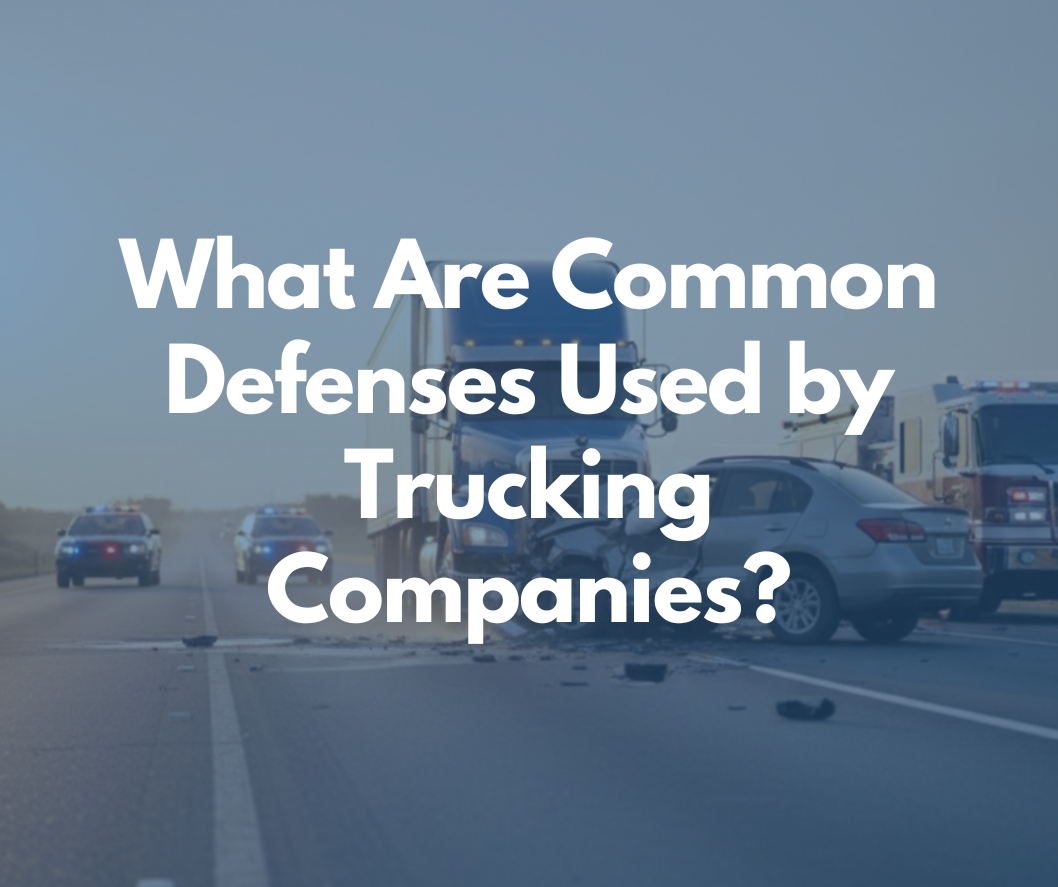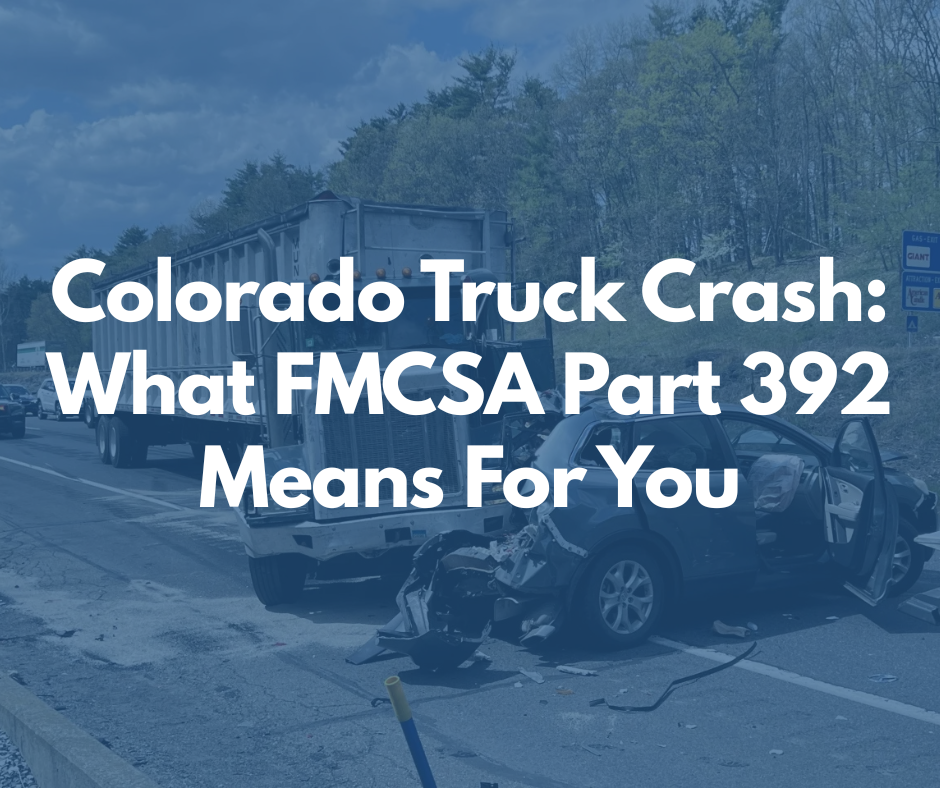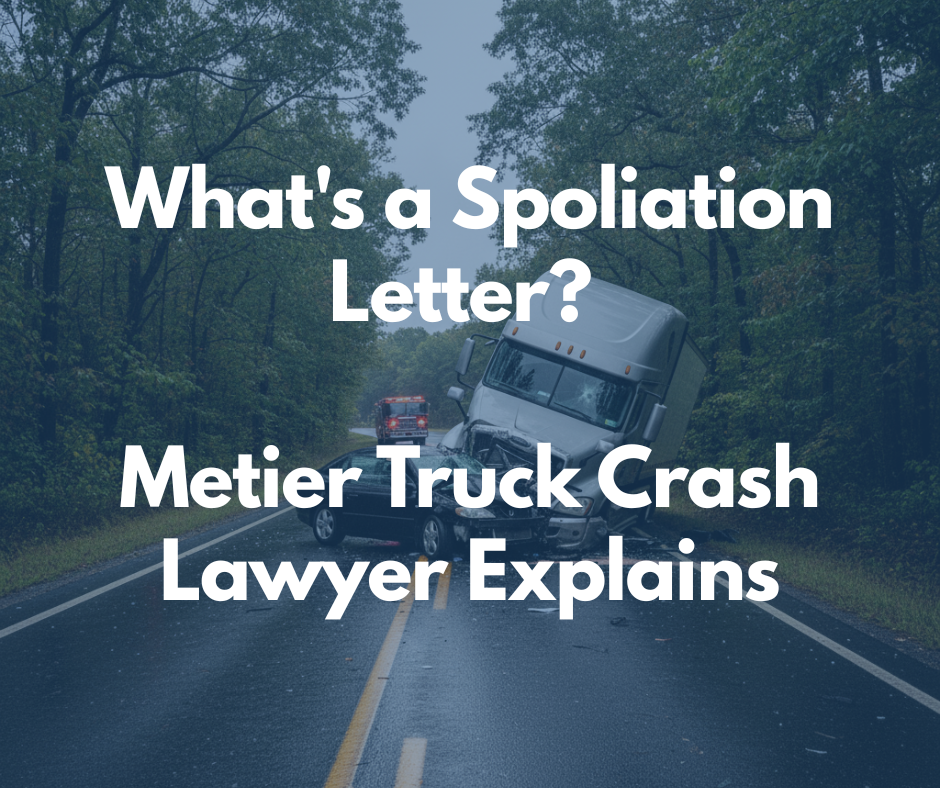
Key Takeaways
- Trucking companies use common defenses used by trucking companies to avoid paying fair compensation after crashes
- They'll claim you contributed to the accident through speeding, distraction, or other negligent behavior
- Companies argue their driver was an independent contractor to dodge employer liability
- They blame external factors like weather, road conditions, or mechanical failures beyond their control
- Trucking firms challenge your evidence and question its validity to dispute negligence claims
- They argue your injuries stem from pre-existing medical conditions, not the crash
- Companies invoke the sudden emergency doctrine, claiming their driver reacted reasonably to unexpected situations
- They may claim you filed your lawsuit after the statute of limitations deadline
- These defense strategies are designed to shift blame away from negligent trucking operations and minimize payouts
- Having an experienced truck accident attorney who holds a Commercial Driver's License can counter these tactics effectively
When you're injured in a crash with a big rig, tractor-trailer, or 18 wheeler crash, you're not just dealing with physical pain and medical bills. You're about to face a well-funded legal machine designed to minimize what trucking companies pay out in claims. These companies and their insurance carriers have teams of lawyers who've spent years perfecting common defenses used by trucking companies to shift blame away from their drivers and operations.
As a truck accident attorney with the Metier Truck Crash Lawyers team who holds a Commercial Driver's License and has handled many of these cases across Colorado, Washington, Oregon, and Wyoming, I've seen every common defense strategy used by trucking companies in the book. Understanding what's coming helps you prepare for the fight ahead.
The Most Common Defense Strategies Trucking Companies Use
Contributory and Comparative Negligence Claims

This is the big one. Trucking companies love to point fingers at the other driver, claiming you caused or contributed to the crash. They'll argue you were speeding, following too closely, or distracted by your phone. In states like Colorado and Oregon, which follow comparative negligence rules, they know that if they can prove you were even partially at fault, it reduces what they have to pay.
We've seen trucking companies argue that a driver who was rear-ended by an 18 wheeler was "driving too slowly" or "should have gotten out of the way faster." It's victim-blaming at its worst, but it's effective if you don't have a truck accident lawyer who knows how to counter these arguments with solid evidence.
The Independent Contractor Defense
This defense makes my blood boil because it's often used to dodge responsibility when drivers cause serious crashes. The trucking company will claim their driver was an independent contractor, not an employee, so they shouldn't be held liable under vicarious liability laws.
Here's what they don't tell you: Even if a driver is technically an independent contractor, trucking companies can still be held responsible if they maintain control over how, when, and where the driver operates. The Federal Motor Carrier Safety Administration (FMCSA) has strict regulations about this relationship, and we use these federal rules to pierce through this defense.
Blaming Weather and Road Conditions
Trucking companies frequently claim that dangerous roadway conditions or severe weather caused the crash, not their driver's negligence. While weather and road conditions can contribute to accidents, professional drivers are held to higher standards than regular motorists.
Commercial drivers are required to adjust their speed and driving behavior for conditions. If visibility is poor or roads are icy, they need to slow down or pull over. The National Highway Traffic Safety Administration (NHTSA) makes it clear that drivers must operate safely regardless of conditions.
Mechanical Failure Claims
When a semi-truck crash involves brake failure, tire blowouts, or other mechanical issues, trucking companies often try to shift blame to equipment manufacturers or third-party maintenance providers. They'll argue the crash wasn't their fault because it was caused by defective parts or poor maintenance by someone else.
This defense falls apart when we dig into maintenance records. Federal regulations require detailed inspections and maintenance logs. If a company failed to properly maintain their vehicles or ignored known mechanical issues, they're still liable even if a part failed.
Challenging Evidence and Causation
Trucking companies have deep pockets and experienced legal teams who will challenge every piece of evidence in your case. They'll question police reports, dispute witness statements, and hire their own accident reconstruction experts to create alternative theories about what happened.
This is why preserving evidence immediately after a semi truck crash is so critical. Electronic logging devices, GPS data, and the truck's black box contain crucial information that can prove negligence. We know how to obtain and analyze this data before trucking companies can claim it was lost or corrupted.
If you or a loved one was injured in a crash with a commercial truck, call our team of truck accident lawyers at 866-377-3800 or schedule a free consultation at www.metierlaw.com.
More Defense Strategies
Pre-Existing Condition Arguments
Insurance companies for trucking firms will dig deep into your medical history, looking for any prior injuries or health conditions they can blame for your current pain and limitations. They'll argue that your back problems, neck pain, or other injuries existed before the tractor-trailer crash.
Having pre-existing conditions doesn't disqualify you from compensation. Under the "eggshell skull" rule, defendants must take victims as they find them. If the crash aggravated or worsened a pre-existing condition, the trucking company is still responsible for those damages.
The Sudden Emergency Doctrine
This defense claims their driver faced an unexpected emergency and reacted reasonably under the circumstances. They might argue another vehicle suddenly swerved into their lane, forcing their driver to make a split-second decision that resulted in the crash.
The problem with this defense is that commercial drivers are trained to expect and prepare for emergencies. They're required to maintain safe following distances and drive defensively precisely because they're operating 80,000-pound vehicles that can't stop quickly.

Statute of Limitations Challenges
Trucking companies and their lawyers will closely monitor filing deadlines, hoping you'll miss the statute of limitations. Colorado gives you three years to file a personal injury lawsuit, while Washington gives you three years, Oregon allows two years, and Wyoming provides four years.
Missing these deadlines can destroy an otherwise strong case. This is why it's crucial to contact a truck accident attorney as soon as possible after your crash, even if you're still receiving medical treatment.
How We Counter These Common Defenses Used by Trucking Companies
As someone who's driven commercial vehicles and understands trucking operations inside and out, I know exactly how to dismantle these common defenses used by trucking companies. We immediately preserve crucial evidence, including electronic logging data, driver qualification files, and maintenance records that trucking companies would prefer to keep hidden.
We work with accident reconstruction experts who understand the physics of big rig crashes and can demonstrate how proper following distances and defensive driving could have prevented the collision.
Frequently Asked Questions
What should I do immediately after a crash with a commercial truck?
Seek medical attention first, then contact a truck accident lawyer as quickly as possible. Crucial evidence like electronic logging data can disappear if not preserved immediately.
Can I still recover compensation if I was partially at fault for the accident?
Yes, in Colorado, Washington, and Oregon, you can still recover damages even if you were partially responsible, though your compensation may be reduced by your percentage of fault.
How long do trucking companies keep driver logs and maintenance records?
Federal regulations require trucking companies to maintain most records for at least six months, but some critical documents must be kept for up to three years.
What if the trucking company claims their driver was an independent contractor?
The legal relationship between a trucking company and driver is determined by control and other factors, not just what the contract says. We investigate the actual working relationship.
How do I know if the trucking company is using unfair defense strategies?
If they're pressuring you to settle quickly, blaming you for the crash without evidence, or refusing to provide basic information about their driver and vehicle, you need legal representation immediately.
Why You Want a CDL Attorney on Your Side
Having handled many trucking cases and actually driven commercial vehicles myself, I understand the industry's defense methods and regulations in ways that general personal injury lawyers simply can't match. When trucking companies see that you're represented by someone who knows their business as well as they do, it changes the entire dynamic of your case.
We've successfully countered every common defense used by trucking companies mentioned in this article, recovering millions for clients across Colorado, Washington, Oregon, and Wyoming. Whether your case needs the insight of a Portland truck accident lawyer or the experience of a Denver truck accident lawyer, the difference is understanding how trucking operations really work and using that insight to build unshakeable cases.
Don't let trucking companies use these defense strategies to minimize your recovery. Call Metier Truck Crash Lawyers at 866-377-3800 or schedule your free consultation today at www.metierlaw.com.
Disclaimer: Past results discussed should not be considered a guarantee of your results as the factors of every case are individually unique. This content is for informational purposes only and does not constitute legal advice. Consult a qualified attorney from Metier Law Firm regarding your individual situation for legal advice.
Tell Us About Your Case – Free Case Review with a Truck Accident Lawyer
Tell Us About Your Case – Free Case Review with a Personal Injury Lawyer
(866) 377-3800Our Locations
.webp)
Do I have a Case?
How Much Should I Be Offered?
Do I Need an Attorney?
If these questions have crossed your mind, let us help. You may need a little direction or may not need an attorney at all, but you deserve to be confident knowing your options. We can provide you with information about our Attorneys of the West® accident investigations and legal services. Your confidential consultation with us is totally free.
Keep up with us!

.svg)




